HB products has developed the unique vapor quality sensor, which is the only sensor able to directly measure the liquid content of liquid in the evaporator output. The sensor works both in pump circulated and DX systems and can optimize the efficiency and capacity to a new level.
1. Evaporator controlThe optimal evaporator is not filled with liquid refrigerant like you often have in pump circulated refrigerant systems with circulation ratios above 1.5. The optimal evaporator is not dry like a lot of superheat-controlled evaporators.
By measuring the liquid content in the evaporator output and using this measurement to control the liquid feed.
Most refrigeration systems operate most of the time in part load and especially during part load the efficiency is typically rather poor and can be optimized significantly. Pump circulated systems fills the evaporator with liquid which reduce heat transfer by 50 % and increases the pressure loss which increase energy consumption. For pump circulated systems an energy saving of minimum 20% is typical for optimized systems, and much more on systems without circulation control.
In DX systems a larger part of the evaporator is used for superheating and the superheat is increased which reduce capacity and increase the power consumption dramatically. We have documentation showing an energy saving of 20% during full load and 50% during part load for a DX ammonia system.
2. Strainer house version
With a vapor quality sensor integrated into a standard strainer house you are ensured safe functionality of the sensor and easy installation. The butt-welded connection makes it easy to weld with same size of piping.
Please be aware that the flow direction of the vapor quality sensor is opposite of the flow direction when used as a strainer. If installed with wrong flow direction functionality will NOT be correct.
Besides the benefit of easy installation this solution makes it easy to dismantle the lid with the sensor conductor and clean it if necessary.
The sensor integrated into standard strainer housing is available in both carbon steel DN20 to DN300 and stainless steel DN20 to DN65. Ask for availability if size outside of this range is requested.
3. Intrinsically Safe design
Intrinsically Safe (IS) sensors are designed and wired to work on such a low current and voltage that it cannot possibly ignite flammable material. By limiting the energy available within the defined hazardous area, electrical equipment can operate safely even amid hazardous mixtures of gasses.
Flooded system:
Optimum efficiency at all loads is obtain by measuring the Vapor Quality in the outlet of the evaporator and use the signal to change the height of the driving head as shown, lower level will minimize the liquid amount in the evaporator and secure balanced and dynamic evaporation during part load and thus optimum heat transfer.
The HBX-OVC-ST Vapor Quality control signal (cable out, 4-20mA) is connected to DI 3 (pin 3) on the HBSLC liquid level sensor and used to change the desired set value for the liquid level in the recirculation vessel/separator.
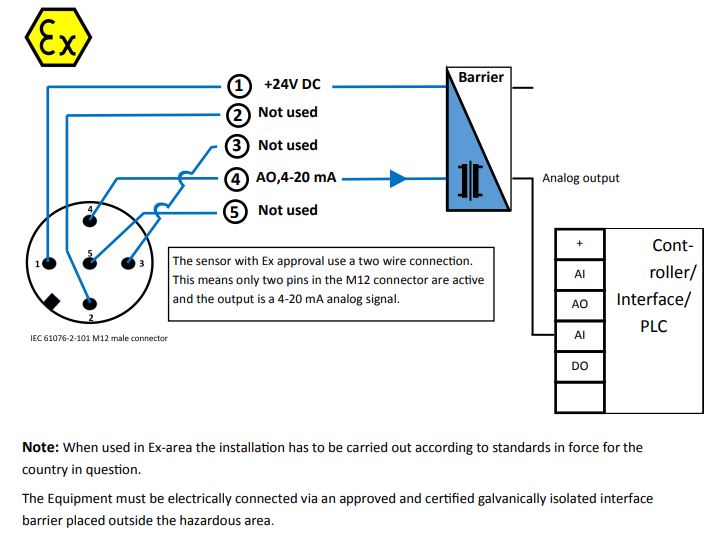
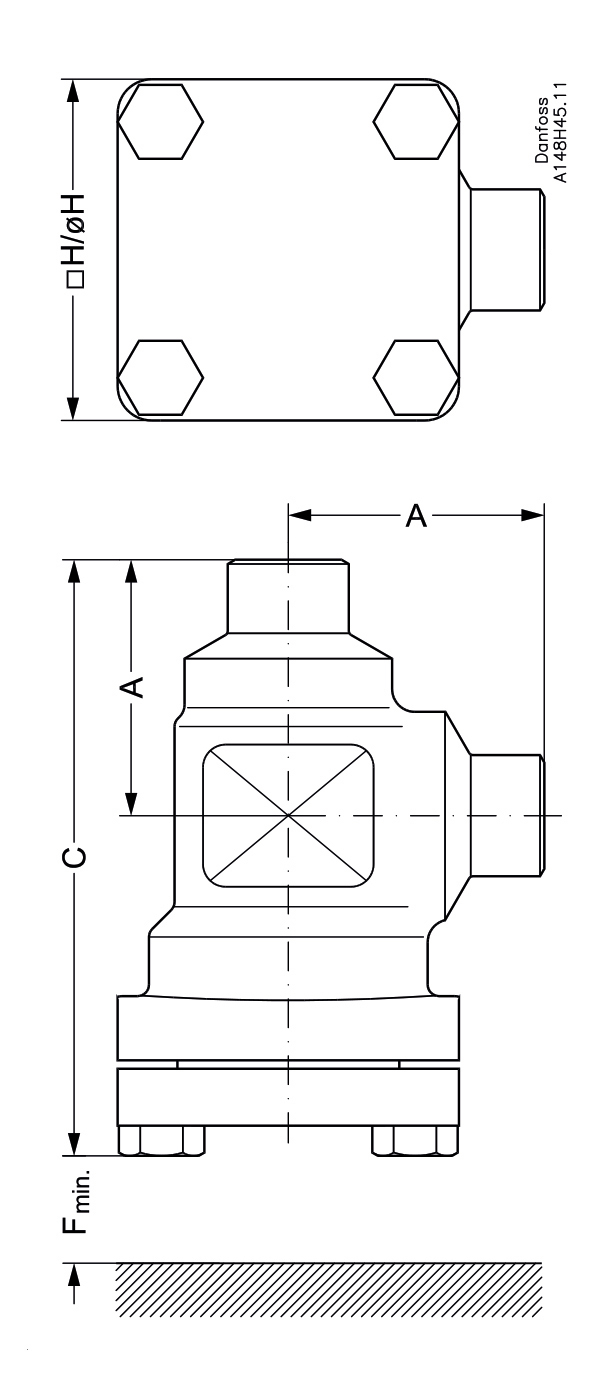
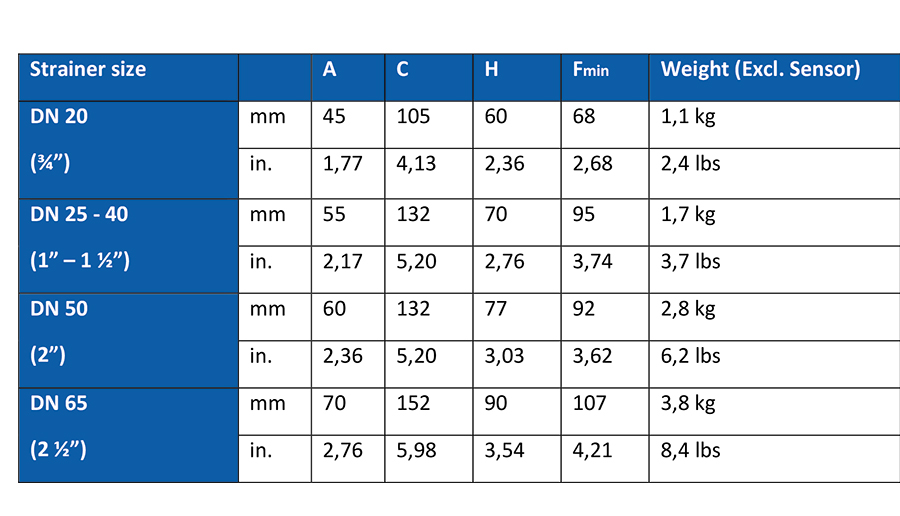
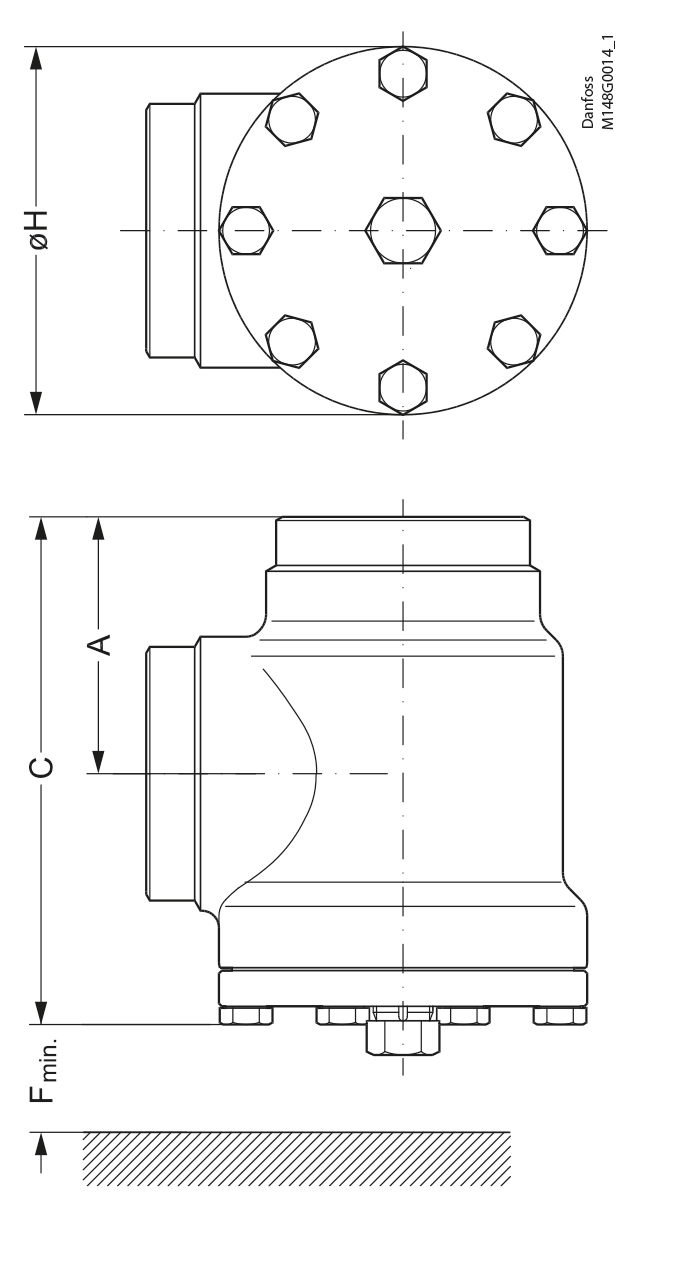
.jpg)
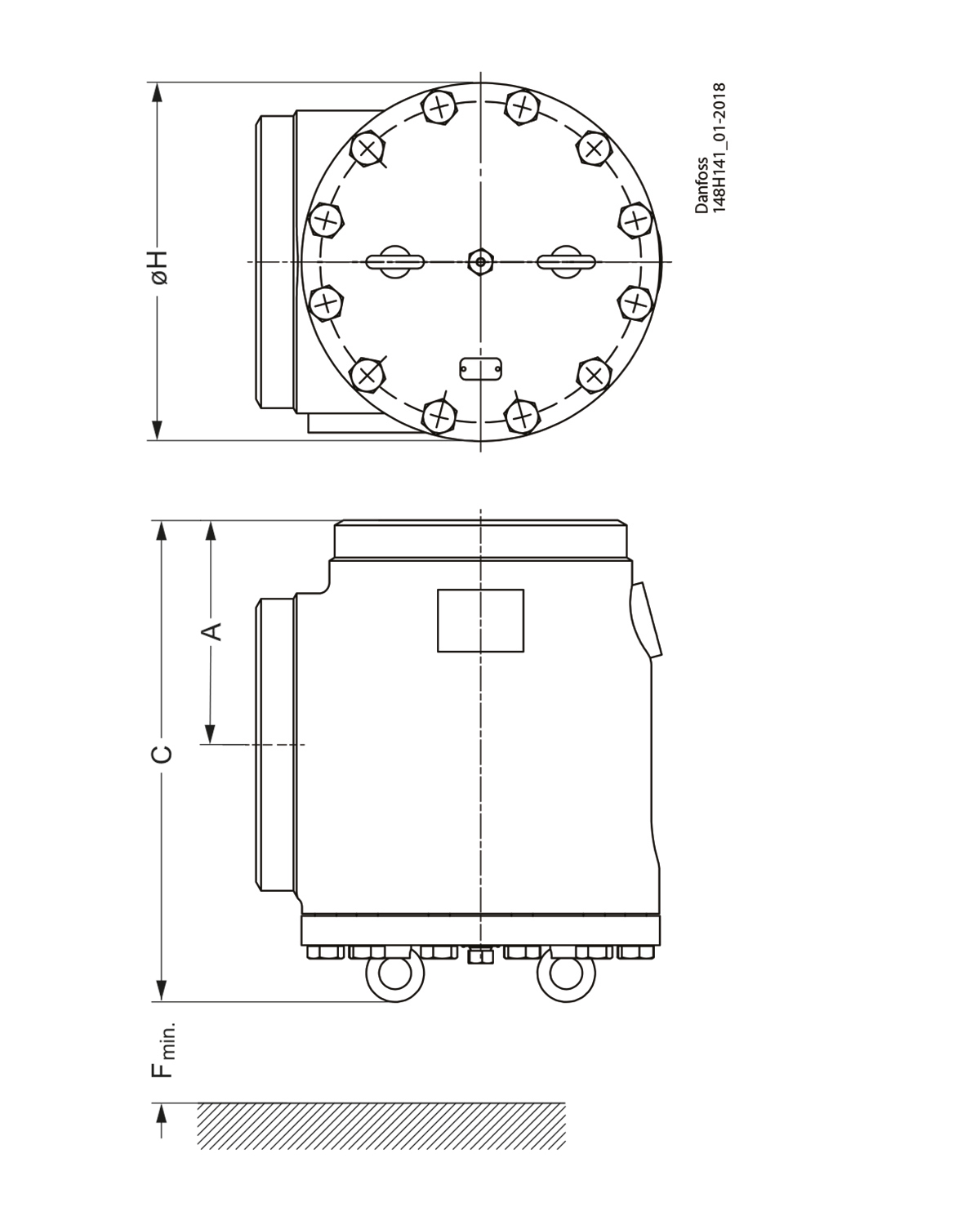

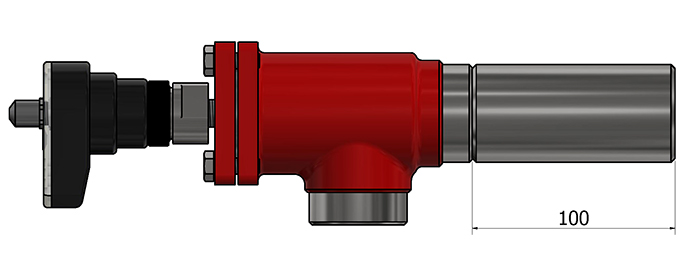
In the sizes DN20-DN40 the strainer is extended with a 100 mm tube.
|
Power supply |
|
|---|---|
|
Voltage |
12-28 V DC two wire |
|
Max. current consumption |
Max 20 mA |
|
Plug connections |
M12, 5 pins - DIN 0627 |
|
Output |
|
|
Signal output |
4....20 mA (AO) |
|
IECEx classification |
Ex ia IIC T1…T6 Ga |
|
Device category |
1G for Zone 0 & 1 |
|
Type of protection |
ia |
|
Gas resp. gas group |
IIC |
|
Temperature class |
T1….T6 |
|
Mechanical specifications |
|
|
Ambient temperature |
-40...+50°C/+70°C |
|
Max pressure |
100 bar |
|
Protection degree |
IP65 |
|
Vibrations |
IEC 60068-2-6 (4g) |
|
Environmental conditions |
|
|
Material liquid parts |
AISI 304 / PTFE |
|
Material electronic parts |
Nylon 6 (PA) |
|
Outsite dimensions |
210 x 51 x 72 mm |
|
Weight |
500 g |
|
Ex area |
|
|
EMC |
EN 61000 |
 Malaysia
Malaysia